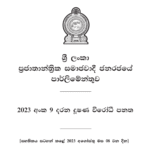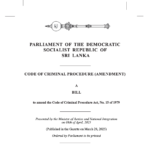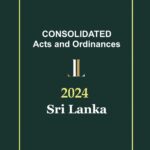In the context provided, “prescription” refers to several legal concepts:
- Prescription as a Legal Doctrine (Prescription Ordinance):
- It is a legal doctrine related to the acquisition of rights or the extinguishment of claims through the passage of time.
- In the context of property law, it often refers to the process by which a person can acquire title to land or other immovable property through continuous and uninterrupted possession over a certain period of time.
- Prescription Act Amendments:
- The documents refer to specific acts such as the Prescription (Special Provisions) Act, No. 5 of 2016 and the Prescription (Amendment) Act, No. 26 of 2014, which are legislative amendments to the Prescription Ordinance in Sri Lanka.
- These amendments address the rights of disadvantaged persons and the state, and modify the conditions under which prescription can be claimed.
- Prescription in Medical Context:
- In a medical context, as mentioned in the National Medicines Regulatory Authority Act, No. 5 of 2015, a “prescription” is an authorization in writing from a person authorized by law (such as a Medical Practitioner, Dentist, or Veterinary Surgeon) to a Pharmacist to dispense a specified medicine or medical device for use by a designated individual or for animal use.
In summary, “prescription” can refer to a legal mechanism for acquiring rights to property through possession over time, specific legislative acts that govern such mechanisms, or a written authorization for medication in a healthcare setting. The context provided focuses on the legal aspects of prescription in relation to property rights and the amendments made to the Prescription Ordinance in Sri Lanka.













